Japan has emerged virtually as a super economic power. Perhaps next to the United States, it has become a most powerful factor in the global economy. It achieved her national objective of catching up with the West in economic development by the seventies. It is during the last two to three decades that it has begun to play an important role in shaping the international economic order. This naturally has created certain frictions between Japan and the United States. Since the centre of gravity, both in geopolitical and geoeconomic terms, has already shifted to the Asia-Pacific region, it is relevant to examine how in the post Second World War period Japan has touched new heights of economic development. This book has undertaken precisely this study. The merit of this book is that it has critically examined the dynamics of Japan’s growth by looking at the problem, in terms of internal factors. This entire study is based on the research work of the Japanese scholars themselves. This study shows that while Japan has modernized its economy, it has not followed the Western model. It will therefore not be incorrect to say that Japan has evolved its own model of economic development. The major purpose of this study is to evaluate critically the various social and economic factors which have enabled Japan to become a global economic power.
Japan: Super Economic Power
$14.40
$16.00
In stock
Free & Quick Delivery Worldwide
All orders amounting to US$ 50 or more qualify for Free Delivery Worldwide. For orders less than US$ 50, we offer Standard Delivery at $14 per book.
ABOUT THE AUTHOR K.V.S. Rama Sarma
K.V.S. Rama Sarma (Kota Venkata Subba Rama Sarma) is Editor-in-Chief of National Herald. He is not only an outstanding journalist of India but has specialized in international affairs, in the politics and economy of the Asia and Pacific Region in particular. He has visited a large number of countries for his research work such as erstwhile Soviet Union, Bulgaria, Ireland, Yugoslavia, China, Pakistan, France, Switzerland, United States and Japan. He authored a book entitled China: Second Liberation (1985).
ABOUT THE AUTHOR V D Chopra
V.D. Chopra began his innings, as Head of Economics Department in D.A.V. College in Rawalpindi. He was a political activist and a freedom fighter. In 1939, he was sentenced to 18 months, imprisonment for pulling down the Union Jack. In 1941, he was detained in the notorious Lahore Fort. He was again arrested under Defence of India Rules in 1942-43. The allegation against him was that he was organizing subversive activities in the armed services. He presented academic papers in various international seminars such as in Japan, Australia, New Zealand and erstwhile Soviet Union. He worked for Link weekly and Patriot daily for three decades in various capacities and rose to become the chief editor. He covered Arab-Israel war from Cairo and Indo-Pak conflicts in 1965 and 1971. He has been awarded the Jawaharlal Nehru Peace Prize for his book India and the Socialist World in 1984. At present, he is Vice-President of the International Institute for Asia-Pacific Studies, New Delhi. He has authored and edited a large number of books during the last 20 years. The books relevant to the present volume include Agony of Punjab (1984), Studies in Indo-Pak Relations (1984), India’s Unity and Security Challenges (1984), South Asia in Transition: Conflicts and Tensions (1986), Religious Fundamentalism in Asia (1994), Genesis of Regional Conflicts (1995), Afghanistan and Asian Stability (1998), and Rise of Terrorism and Secessionism in Eurasia (2001).
reviews
0 in total
Review by Anonymous
Be the first to review “Japan: Super Economic Power” Cancel reply
You must be logged in to post a review.
Bibliographic information
Title
Japan: Super Economic Power
Author
Edition
1st ed.
Publisher
ISBN
8121206006
Length
253p., Tables; Index; 23cm.
Subjects
more by V D Chopra see more
Genesis of Regional Conflicts: Kashmir, Afghanistan, West Asia, Cambodia, Chechnya
The end of the Cold War has ...
$22.50
$25.00
similar bookssee more
Struggle for Economic Freedom and Social Justice of Scheduled Caste in South India
This is a comprehensive ...
$42.30
$47.00
Suply Chain Management
$30.60
$34.00

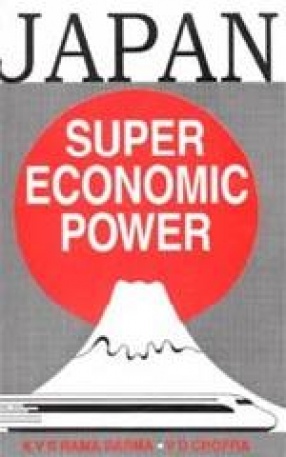
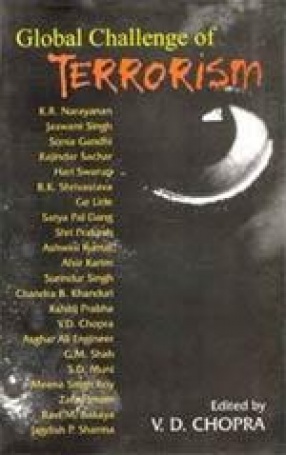
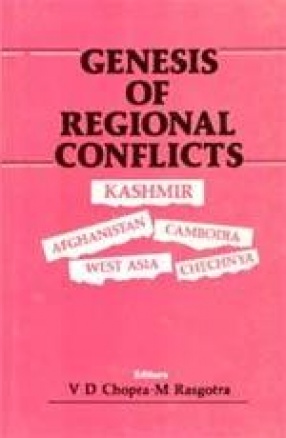
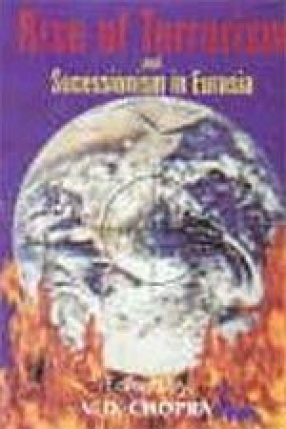
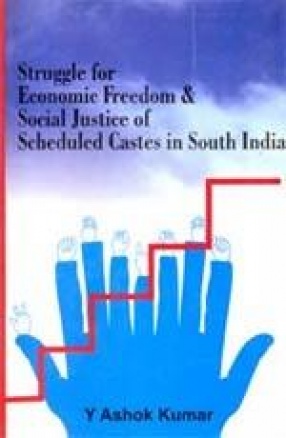
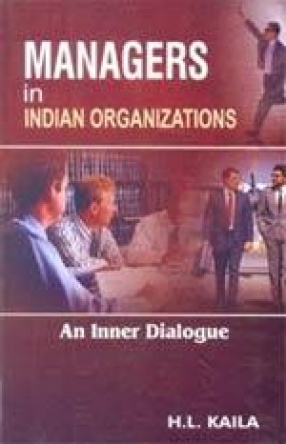
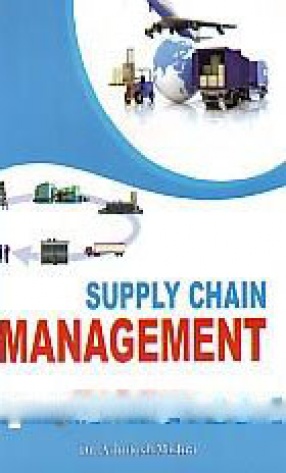
There are no reviews yet.